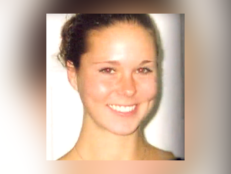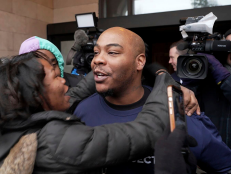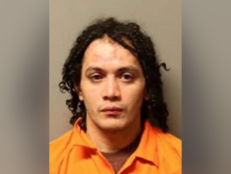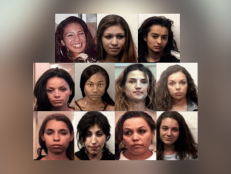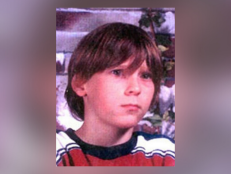‘He Was Speaking Truth To Power’: Questions Remain In Case Of Chicano Activist Found Dead
UC Davis student Oscar Gomez died from blunt force trauma in 1994 and his manner of death was listed as undetermined.

Natalie Parades via NPR
A college activist involved in the Chicano rights movement in California died under mysterious circumstances, and almost 30 years later, some still wonder if foul play was involved.
On Nov. 17, 1994, the body of Oscar Gomez was found on a beach in Santa Barbara. Investigators at the time believed Gomez, a respected radio DJ and student leader, fell from a bluff not far from the University of California Santa Barbara campus.
In 2019, the University of California Davis honored Gomez with a posthumous degree, and KPCC reporter Adolfo Guzman-Lopez began to look into the incident, which he chronicled on the podcast Imperfect Paradise: The Forgotten Revolutionary.
During the early 1990s, anti-immigrant rhetoric was raging. “There was a lot of immigration from Central America and from Mexico into the United States, and this was largely because of the U.S.-funded Central American civil wars and this Mexican economic crisis that happened in the 1980s,” Guzman-Lopez explained to NPR.
Gomez, a Chicano student leader and host of the radio show La Onda Xicana, “was one of thousands of college students who resisted, who tried to return the dignity back to people who were targeted, who were being called less than human,” Guzman-Lopez said.
“He died the day after a protest,” Guzman-Lopez added, noting the coroner determined Gomez’s cause of death was listed as blunt force trauma to the head.
The manner of death, however, was left undetermined.
“The sheriff's department investigators could not find any witnesses who saw Oscar fall from the bluffs there in Santa Barbara, which can be up to, you know, 70, 80 feet tall,” Guzman-Lopez noted. “So that left a lot of questions open.”
In the course of his investigation, the reporter spoke with Gomez’s father and other close family members about the case.
“They believe that Oscar was murdered because of his political activism, because he was speaking truth to power, that he was broadcasting, really, within earshot of the state capital of California,” Guzman-Lopez said.
